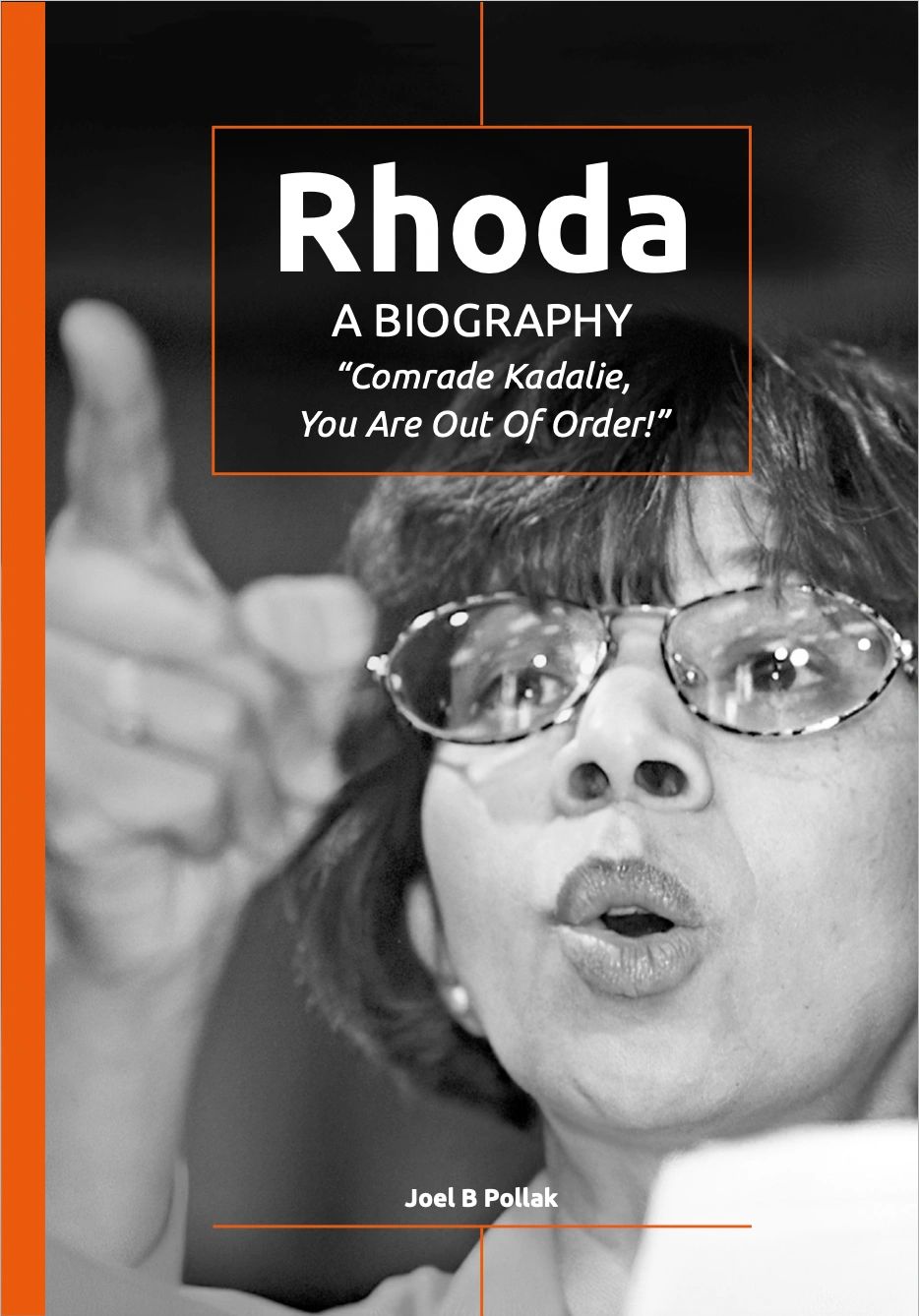Who was Rhoda Kadalie? Anti-apartheid activist, feminist within the anti-apartheid movement, human rights commissioner, social development leader, opinion columnist
What made her unique? Rhoda was one of the few people within the anti-apartheid movement and the ANC who was willing to speak out against the ruling party’s abuses.
What changed her? Rhoda was changed by the experience of being targeted by the ANC abroad, by her experiences within government, and by Thabo Mbeki’s centralized style.
What was the nature of the change? Rhoda went from being a revolutionary who wanted to undo the entire order, to being a conservative who wanted to defend what was fundamental.
What are some specific examples? Rhoda supported, then opposed, affirmative action; she backed abortion, but not late-term abortion; she was a socialist, then a liberal (without labels)
What made her controversial? Rhoda called out her friends; she stood up for the opposition when it was called racist; she defended Israel; she predicted Donald Trump would win in 2016.
What didn’t people understand? That through all of her changes, she remained committed to freedom — and that she had an underlying sense of Christian faith in a moral universe.
What was her impact? She inspired many women to take charge of their lives, she inspired others to speak out, and she also is remembered in a scholarship at Hillsdale College.
What is her core principle? Rhoda believed in democratic pluralism — that citizens must have choice to hold leaders accountable, and they must seek both vigorous debate and tolerance.
How can we emulate her example? Rhoda did not just criticize; she also did. So do something. And cultivate friends who may have a different political outlook, as Rhoda did.
Buy the biography: https://rhodakadalie.com
This week’s portion launches the great story of Abraham, who is told to leave everything of his life behind — except his immediate family — and to leave for “the Land that I shall show you.”
There’s something interesting in the fact that Abraham is told to leave his father’s house, as if breaking away from his father’s life — but his father, in fact, began the journey, moving from Ur to Haran (in last week’s portion). His father set a positive example — why should Abraham leave him?
Some obvious answers suggest themselves — adulthood, needing to make one’s own choices, his father not going far enough, etc.
But I think there is another answer. Abraham (known for the moment as Abram) needs to establish his own household. This is not just about making one’s own choice, but really about choosing one’s own starting point. It’s starting over.
Sometimes we start over in fundamental ways even if much that surrounds us remains the same. Sometimes the journey we have to ...
The story of Noah is familiar; the details, less so.
Noah is often seen as an ambivalent figure. He was righteous -- but only for his generation. What was his deficiency?
One answer suggests itself: knowing that the world was about to be flooded, he built an Ark for the animals and for his own family -- but did not try to save anyone else or to convince them to repent and change their ways (the prophet Jonah, later, would share that reluctance).
Abraham, later, would set himself apart by arguing with God -- with the Lord Himself! -- against the destruction of Sodom and Gomorrah, saying that they should be saved if there were enough righteous people to be found (there were not).
Still, Noah was good enough -- and sometimes, that really is sufficient to save the world. We don't need heroes every time -- just ordinary decency.
Hi all -- as I noted last month, I'm going to be closing down my Locals page, at least for tips and subscriptions -- I may keep the page up and the posts as well, but I'm no longer going to be accepting any kind of payment.
Look for cancelation in the very near future. Thank you for your support!













